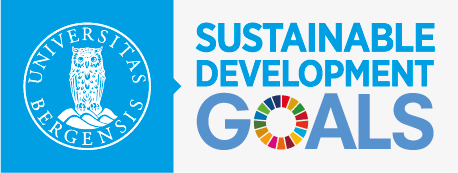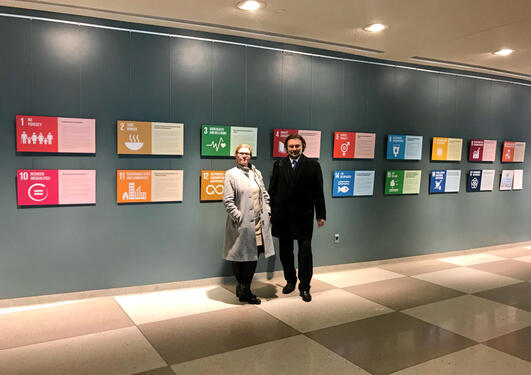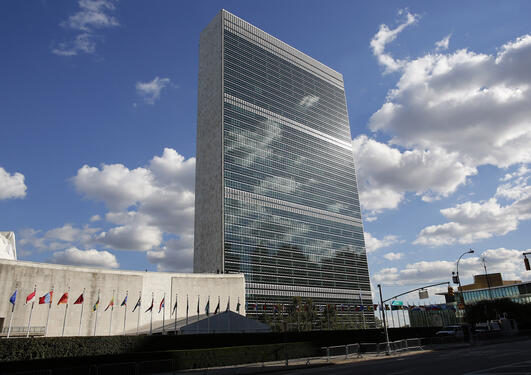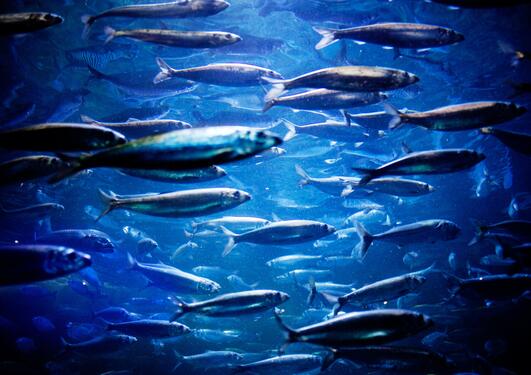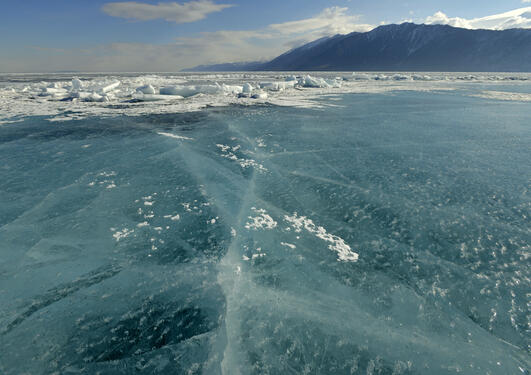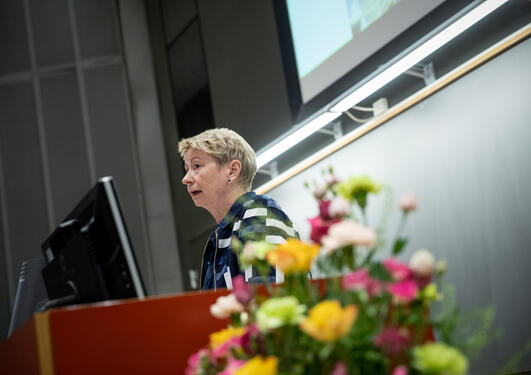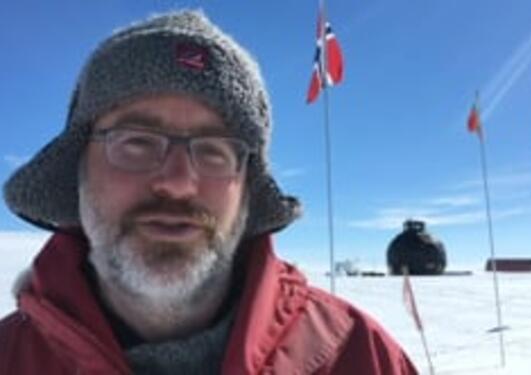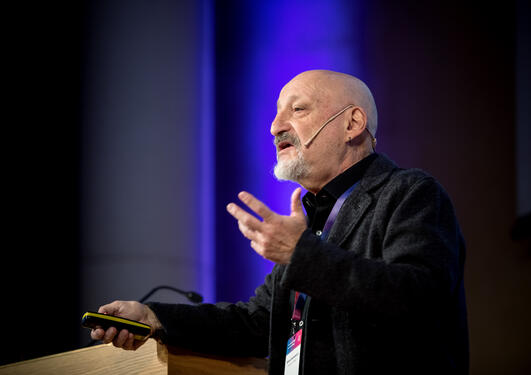Providing science advice to the UN
The University of Bergen's pioneering approach to the SDGs has brought the university in direct contact with the United Nations to provide scientific advice.

Main content
Bringing together climate action and partnerships to engage with the 2030 Agenda at the UN is one of the key tasks for the University of Bergen (UiB) delegation at the High-level Political Forum (HLPF) 2019 at the UN.
“The SDGs are under review at the UN for two weeks every July, when the global community meets to review and discuss select SDGs. Each year 40-50 countries present their progress on the SDGs,” explains Professor Edvard Hviding, who is Scientific Director for SDG Bergen Science Advice. “One week of discussions and workshops is followed by a week in which state leaders and ministers produce that year's ministerial declaration.”
Science at the UN table
In 2018, Norway's Ministry of Foreign Affairs for the first time included the university sector in the official delegation. Representing the then recently formed National Committee for the 2030 Agenda in the University Sector, were Vice-Rector Annelin Eriksen and Professor Hviding of UiB.
“Not many countries include scientists in their HLPF delegation. It was a privilege to be included by Norway and to be able to communicate our scientific agendas to the high-level proceedings,” says Hviding.
“Whereas science and the academic community have always contributed to processes in the United Nations, we still felt we were among a select few to be given such a prominent role. Switzerland was one of the few other countries to include scientists in their official delegation, and the scientific community at large was not very well represented last year.”
Climate action and global partnerships
In 2019, UiB co-organises an HLPF side event with the Permanent Missions of Norway, Palau, St. Lucia and Fiji to the United Nations – Partnerships for Climate Action: the Science-Policy Nexus. Taking place on Friday 12 July. The side event includes among its speakers Professor Tore Furevik, Director of the Bjerknes Centre for Climate Research.
“The discussion takes its point of departure in a series of recent dialogues held between the Norwegian government, United Nations ambassadors from around the world – including Small Island Developing States – and institutions of research and higher education in Norway and their partner institutions globally,” explains Hviding.
He points to the side event's juxtaposition of SDG 13 (Climate Action) and SDG17 (Partnerships for the Goals) as key to providing new knowledge to inform decision-making on the SDGs.
“Climate action is one of the core SDGs being reviewed at this year’s HLPF. By combining the specific challenges of SDG13 with the cross-cutting partnership ambitions of SDG17, we look forward to exploring and exemplifying various ways in which scientific knowledge and multilateral diplomacy can be brought into closer interaction for the SDGs,” says Hviding, who is the moderator of the side event.
Urgent need for SDG science advice
Last year the UiB professor presented a statement on behalf of Norway in the plenary forum on Advancing science, technology and innovation for SDGs.
“I presented Norway's national vision of developing best practice scenarios for science diplomacy and science advice on sustainable development and science, technology and innovation. This process of science-policy innovation aims to expand Norway's global partnerships for the goals,” says Hviding, who is an anthropologist with particular expertise on climate change in the Pacific.
After last year's breakthrough in the Norwegian delegation, this year UiB has expanded its network and sends its own delegation, using various options to find accreditation and thus underlining how the university is building global partnerships. For example, Hviding is accredited to the delegation of the small Pacific island nation of Palau.
Building global partnerships
Hviding also points to the various events hosted by the International Association of Universities (IAU) and its member universities, where UiB will have a strong presence.
“IAU is involved in several events at the forum. And as members and lead institution for the IAU SDG14 Cluster, Life below water, the University of Bergen participates in several of these events,” Hviding points out.
IAU is a worldwide higher education network with more than 650 members from 120 countries, co-located with UNESCO in the heart of Paris. In 2018 the IAU Global Cluster for Agenda 2030 was established to foster concrete actions on the SDGs and to enhance university partnerships.
“I am particularly looking forward to the event arranged by our fellow IAU partner, the University of the West Indies, with a particular focus on creating best practice in education for SDG13, and with UiB's Associate Professor Kikki Kleiven as one of the speakers,” says Hviding.
Science moving in to offer advice
Professor Hviding believes that this year's HLPF will differ from last year's by the world community seeing more scientists engaging directly with the global goals to strengthen the science-policy interface.
“Even ahead of the 2019 HLPF, it is noticeable that there are more universities and scientists participating this time around,” says Hviding, “and through our own work with partners, the University of Bergen has been among the driving forces for researchers to engage more directly with the SDGs.”
He is also hopeful to see more scientists making their way into the official delegations of UN member states at this and future HLPFs.
“Exemplified by IAU, we see that university alliances raise their participation at the HLPF by organising special events and workshops. This is an on-going process.”
